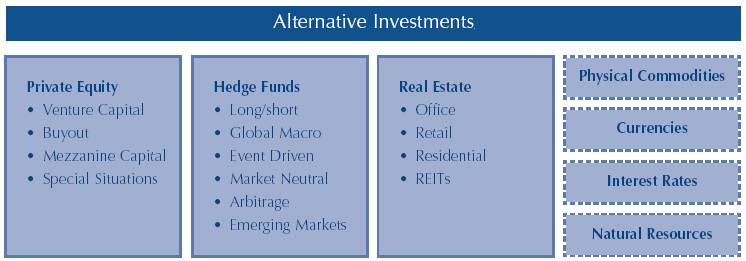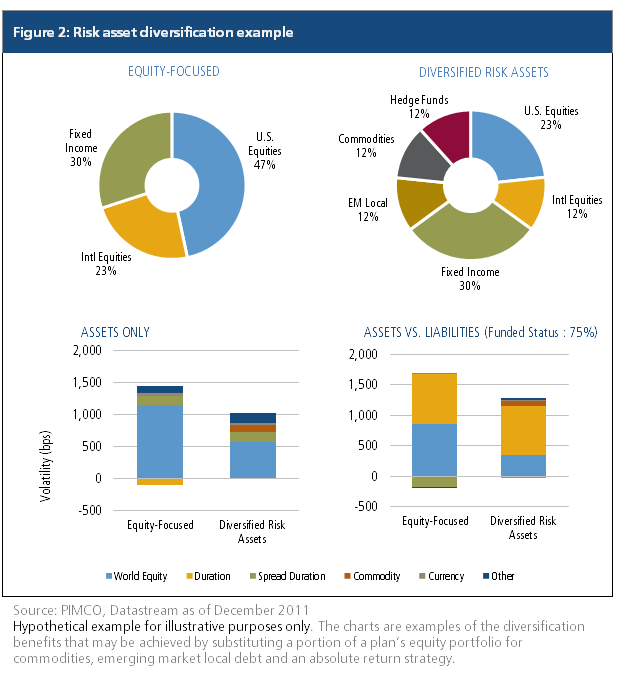Alternative Investing
Post on: 10 Май, 2015 No Comment

HEDGE FUNDS: It’s one hell of a party, if you can get in
Small investors can’t easily enter, TAVIA GRANT writes
Hedge funds might be all the rage among wealthy investors and maverick fund managers, but for small retail investors, they remain inaccessible, expensive and, at times, prone to spontaneous combustion.
Still, with the potential to protect against market downturns and a growing pool of talented managers, hedge-fund investing might be attractive for those with brave hearts, knowledge and cash to spare.
First, a word for the layman on what they are. The idea was born half a century ago, when an editor at Fortune magazine named Alfred Jones hatched the concept of a fund that would protect him from declines in the market while still generating healthy returns in a rising market. He believed that one could buy the best stocks in a rising market while selling short (or wagering on a decline in equities) in the event of a market drop.
A few other characteristics distinguish hedges from plain old mutual funds. The industry is lightly regulated and tends to have higher fees, generally a 2-per-cent management fee plus 20 per cent of performance. Investments tend to be short term and most managers have their own money on the line.
The idea caught fire when the likes of George Soros and Michael Steinhardt posted compound returns of 30 per cent in the 1980s and 1990s — and managed to outperform in both bull and bear markets.
The global hedge fund industry now has $1.1-trillion (U.S.) in assets, a number that is predicted to almost double by 2010, according to Tony Sanfelice, chief executive of Canadian Hedge Watch.
In Canada, regulatory requirements mean hedge funds are open to wealthy individuals and institutional investors, but they are not as accessible for smaller investors.
Moreover, high-profile fraud allegations at Portus Alternative Asset Management and Norbourg Asset Management scared off many would-be investors last year.
Still, “we’re getting a lot of calls and really expect things to pick up in the next three to six months,” Mr. Sanfelice said. “If the markets start going down, that will accelerate the interest in hedge funds in Canada.”
The benchmark S&P/TSX composite index has risen 4.3 per cent this year on top of last year’s 21.9-per-cent gain.
Retail investors have a few ways to enter the market, said Miklos Nagy, co-author of the book Hedge Funds for Canadians.
The first is through principle-protected notes, which are usually backed by a bank and guarantee the principle investment. The catch, according to a May report by the Investment Dealers Association of Canada, is that notes often must be held for as long as 11 years and there is no guarantee the underlying hedge fund will make any return. They also may have higher-than-average fees.
On top of that, these offerings may not be around much longer, at least in their current incarnation. The Ontario Securities Commission said in November it’s reviewing whether these securities should still be available to small investors.
The second way, in some provinces such as Nova Scotia (but not Ontario), is for retail investors to sign a waiver saying they’re aware they could lose their entire capital in the event of a collapse. That risk acknowledgement form allows people to invest less than $10,000 (Canadian) in hedge funds.
The third way is to amass a small fortune first. Those who make $200,000 a year, or with their spouse make $300,000 a year, or have $1-million investable assets, are eligible to invest less than $10,000 in hedge funds.
For all other non-accredited people, $150,000 is generally the minimum amount they must invest. The threshold is lower — about $25,000 or less — for accredited, or sophisticated, investors. (Rules on hedge funds vary across Canada.)
The fourth way is to move to Spain, where anybody can buy hedge funds at a low minimum.

In the U.S. meantime, availability for retail investors is growing. Charles Schwab Corp. for example, has a hedged equity fund that last year lowered its minimum investment to $2,500 (U.S.).
For those able to access the market, one option may be a fund of hedge funds (though again, beware of layers of fees).
“Depending on their age, income and risk tolerance, in many cases I wouldn’t shy from recommending a low-risk hedge fund of funds,” said Mr. Nagy, who also runs Quadrexx Asset Management in Toronto. Spreading money over a number of hedge funds tends to protect investors’ capital the best, he added.
So the barriers to entry are large, the fees are high and the demise of Long-Term Capital Management haunts you still. Then why, oh why, are these funds exploding in popularity, not just in Canada but around the world?
First, they’re great for bears, and the promise of a fat paycheque is attracting some of the most clever, creative minds in the business. (Just last week, Montreal hedge fund Versant Partners hired Martin Roberge — a top-ranked analyst at National Bank Financial.)
Unlike mutual funds, hedge funds are flexible enough to protect investments if the market falls. One way they do this is through short selling — or borrowing a security, with the hopes that it must later be bought back at a lower price and returned to the broker.
As for managers’ talent, hedge funds can sink or swim depending on who’s running them. Mr. Nagy recommends learning all you can about managers. “Do your due diligence or ensure your financial adviser does,” he said.
James McGovern, chairman of AIMA Canada, the Canadian hedge fund industry’s trade group, says investors should do their homework. “If they’re not familiar with this, they should really either get advice or do quite a bit of work before they put their money on the line.”
To track performance, Canadian Hedge Watch runs a hedge-fund index that started in the spring of 2005, while Scotia Capital is starting one on March 1. Both indexes show that hedge funds underperformed Canada’s benchmark index last year.
Those seeking information on Canada’s hedge fund industry can visit the websites of AIMA Canada or Canadian Hedge Watch.














